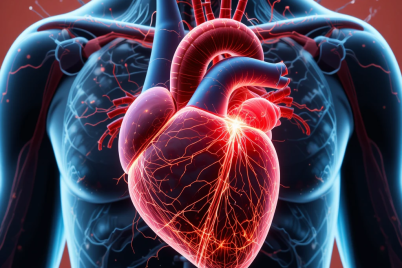Congestive heart failure (CHF) is a serious medical condition that affects millions of people worldwide. Despite its prevalence, many remain unaware of its causes, symptoms, treatment options, and how to prevent it. In this comprehensive, SEO-friendly article, we explore everything you need to know about congestive heart failure to help you stay informed and healthy.
What is Congestive Heart Failure?
Congestive heart failure, often simply called heart failure, occurs when the heart is unable to pump blood effectively to meet the body’s needs. This inefficiency leads to a buildup of fluid in the lungs, legs, and other tissues, hence the term “congestive.”
CHF is a chronic and progressive condition, meaning it tends to worsen over time. However, with early diagnosis and proper management, many people can live long, productive lives.
Types of Congestive Heart Failure

Comprehensive Guide to Congestive Heart Failure – Causes, Symptoms, and Treatment
There are several types of CHF, categorized based on which part of the heart is affected:
- Left-sided heart failure: The most common form. It can further be divided into:
- Systolic heart failure: The left ventricle can’t contract effectively.
- Diastolic heart failure: The left ventricle can’t relax or fill properly.
- Right-sided heart failure: Usually occurs as a result of left-sided failure. Causes blood to back up in the veins.
- Biventricular heart failure: Both sides of the heart are affected.
Common Symptoms of Congestive Heart Failure
Recognizing the symptoms early can lead to timely treatment. Common signs include:
- Shortness of breath (dyspnea), especially during physical activity or when lying down
- Persistent coughing or wheezing
- Swelling in the legs, ankles, and feet (edema)
- Fatigue and weakness
- Rapid or irregular heartbeat
- Increased need to urinate at night
- Difficulty concentrating or decreased alertness
- Sudden weight gain due to fluid retention
- Lack of appetite and nausea
Causes and Risk Factors
Several underlying health conditions and lifestyle choices can lead to CHF. The most common causes include:
- Coronary artery disease (CAD)
- High blood pressure (hypertension)
- Diabetes
- Heart attack
- Heart valve disease
- Cardiomyopathy (disease of the heart muscle)
- Congenital heart defects
- Arrhythmias (abnormal heart rhythms)
- Chronic diseases like thyroid disorders, HIV, and severe anemia
Risk factors such as smoking, obesity, poor diet, sedentary lifestyle, and excessive alcohol or drug use can significantly increase the likelihood of developing CHF.
Diagnosis of Congestive Heart Failure
A timely and accurate diagnosis is crucial for effective treatment. The diagnostic process typically includes:
- Medical history and physical examination
- Blood tests to check for signs of kidney or liver problems
- Chest X-ray to examine the lungs and heart size
- Electrocardiogram (ECG or EKG) to detect abnormal rhythms
- Echocardiogram to assess the heart’s pumping ability
- Stress test to evaluate how the heart functions during exercise
- MRI or CT scan for detailed heart imaging
Treatment Options for Congestive Heart Failure
While there is no cure for CHF, several treatment options can help manage the condition and improve quality of life.
Lifestyle Changes
Making healthy lifestyle choices is the first step in managing CHF:
- Healthy Diet: Low in sodium, saturated fats, and added sugars
- Regular Exercise: Under medical supervision
- Weight Management: Maintaining a healthy weight
- Quitting Smoking: Essential for heart health
- Limiting Alcohol: Helps reduce strain on the heart
Medications
Doctors often prescribe medications to control symptoms and improve heart function:
- ACE Inhibitors: Help relax blood vessels
- Beta-Blockers: Reduce heart rate and blood pressure
- Diuretics: Help remove excess fluid
- Aldosterone antagonists: Help retain potassium while removing fluid
- Digitalis: Strengthens heart contractions
Surgical and Device Therapies
In advanced cases, surgical intervention or medical devices may be necessary:
- Coronary bypass surgery
- Heart valve repair or replacement
- Implantable cardioverter defibrillators (ICDs)
- Cardiac resynchronization therapy (CRT)
- Left ventricular assist device (LVAD)
- Heart transplant
Preventing Congestive Heart Failure
Prevention is key, especially if you have risk factors for CHF. Here are some tips to protect your heart:
- Regular Checkups: Early detection of high blood pressure, cholesterol, or diabetes
- Heart-Healthy Diet: Include fruits, vegetables, whole grains, and lean proteins
- Active Lifestyle: Aim for 150 minutes of moderate exercise per week
- Stress Management: Practice relaxation techniques
- Adequate Sleep: Aim for 7-8 hours per night
Living with Congestive Heart Failure
Living with CHF requires ongoing care and attention. Here are a few tips to manage daily life:
- Track Your Symptoms: Monitor for signs of fluid retention or fatigue
- Take Medications as Prescribed
- Keep Regular Appointments with your cardiologist
- Use a Daily Weight Log: Sudden weight gain can indicate fluid buildup
- Join a Support Group: Emotional support is crucial for well-being
Congestive Heart Failure in the Elderly
CHF is especially common in older adults. Aging affects the heart’s efficiency and increases susceptibility to other chronic conditions. Caregivers should be aware of signs of cognitive decline, medication side effects, and mobility issues.
Prognosis and Outlook
The prognosis for CHF varies based on the stage of the disease and individual health factors. With appropriate treatment and lifestyle changes, many patients experience symptom improvement and increased longevity.



